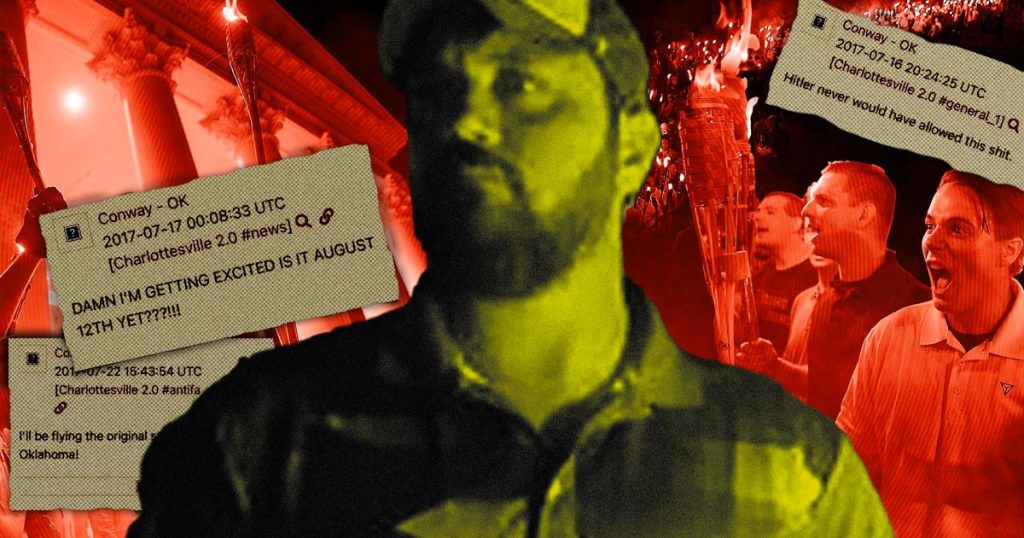City Council member Judson Blevins in Enid, Oklahoma, lost a recall election after being linked to white supremacist groups. Progressive activists launched the recall effort due to Blevins’ refusal to address evidence tying him to Identity Evropa and his attendance at the 2017 white supremacist rally in Charlottesville, Virginia. At the election debate, Blevins finally admitted attending the rally to protest the removal of Confederate statues. However, he did not address his participation in the tiki-torch march or confirm his affiliation with Identity Evropa, a disbanded racist and antisemitic group. Photographs from the rally identified Blevins, further fueling the controversy. Despite this, Blevins expressed confidence that voters would support him in the recall election.
Father James Neal, a local activist, questioned Blevins about his possible membership in Patriot Front, another white supremacist group, after a report revealed a large donation to Blevins’ campaign from a Texas man with ties to Patriot Front. Blevins repeatedly refused to answer Neal’s question. Prior to his election to the City Council, Blevins was identified by Right Wing Watch and anti-fascist researchers as the pseudonymous “Conway” in leaked Identity Evropa chat messages. The account posted racist and antisemitic messages and boasted of spreading propaganda across Oklahoma. Despite these revelations, Blevins narrowly won the council seat in 2023.
Blevins’ loss in the recall election was attributed to his association with white supremacist groups and his failure to address concerns from the community. His opponent, Cheryl Patterson, received more votes in the election, signaling a rejection of Blevins’ ties to hate groups. The recall effort was driven by a small group of progressive activists who were concerned about Blevins’ involvement with Identity Evropa and his participation in the Charlottesville rally. Blevins’ lack of transparency on these issues further fueled public distrust and ultimately led to his defeat.
The controversy surrounding Blevins’ ties to white supremacist groups and his attendance at the Charlottesville rally raised questions about his fitness to serve on the City Council. Despite acknowledging his presence at the rally, Blevins failed to provide a clear explanation for his actions or address his potential affiliation with white supremacist organizations. This lack of accountability and transparency eroded public trust and support for his candidacy. The recall election outcome reflected a community’s rejection of hate and intolerance, opting instead for a candidate who prioritizes inclusivity and represents the values of the constituents.
Father James Neal’s confrontation with Blevins over his ties to Patriot Front highlighted the ongoing concerns about the council member’s connections to white supremacist groups. The revelation of a significant donation from an individual linked to Patriot Front added another layer of controversy to Blevins’ already tarnished reputation. The persistence of local activists in seeking answers from Blevins and holding him accountable for his associations demonstrated a commitment to upholding community values and ensuring ethical leadership in local government. The recall election served as a pivotal moment in Enid’s civic life, reaffirming the importance of transparency, integrity, and accountability in elected officials.


